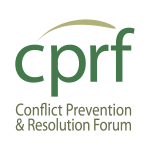Ivory Coast at a Crossroads

Alassane Ouattara arrives in the hall in Yamoussoukro, Côte d'Ivoire for his inauguration, May 21. (Rebecca Blackwell, AP)
The post-election violence in Côte d’Ivoire, following the county’s disputed fall elections have left at least 3,000 dead by most estimates. The violence further inflamed underlying tensions between the North and South of the country and acted upon the issues of belonging and identity that have long plagued Côte d’Ivoire.
Prior to former president,Laurent Gbagbo’s capture and arrest, his supporters warred with pro-Ouattara groups and both were responsible for the deaths and displacement of Ivorian civilians.
With the end of fighting begins the harder tasks of rebuilding and reconciling. Alassane Ouattara was officially sworn in on May 21st, and though some felt that a government of national unity would work toward helping reconciliation, his new 36-member government has no representatives from Gbagbo’s Popular Front Party (FPI). More telling may be how he will deal with issues of impunity, especially where Ouattara supporters are implicated in human rights violations. Currently, he has pledged to uphold the rule of law in Côte d’Ivoire:
“My desire is to ensure that there is no impunity in Ivory Coast. No one is above the law. All those who committed crimes will be punished and the law is there to work out the penalties.”
In a recent article for Huffington Post, our Program Coordinator in Abidjan, Joel Kangha speaks about what actions can be taken to make reconciliation successful in Côte d’Ivoire. First and foremost, time is of the essence:
Resolving conflict isn’t a one-time thing, nor can we afford to wait to start the process. If we want to actually stop the bloodshed before it starts, we have to go into communities early and work with individuals and civil society to lay the groundwork and provide the necessary tools – and then we need to keep working at it.
He points, in particular, to eight towns where Search has constructively helped to bridge divides. Even during the outbreak of violence, these towns remained more peaceful than their neighbors:
The town of Sassandra, once the scene of previous violent altercations among rival youth groups, is an example of how such engagement can change the face of a community. As a result of conflict management work done there, young political activists from opposing parties listened to the news radio together during the election crisis, and would then discuss the day’s events. All throughout the violence and upheaval, they never once resorted to violence themselves, debating heatedly – but peacefully.
The success in Sassandra also serves to point to a particularly important tool: radio. Radio, a main source of information for Ivoirians, is emerging as a vital platform for engaging moderate voices across the country and sectarian divides. Through the most recent crisis, alternative radio programming continued to broadcast on 42 stations, providing an unequivocal, resonant and accessible voice promoting non-violence.
Kangha rightfully notes, that it will take more than words or pledges to ensure that Côte d’Ivoire does not descend into violence when faced with a challenge or division.
Read the rest of his insightful article here.
And check out the work we’re doing in Côte d’Ivoire!
How do you think attitude shifts can best be achieved?









It’s going to be a long road. We are still hearing gunshots most nights in our area and of reprisal killings or disappearances. Security is still a real concern for many. It is not easy to forget the last few months (or years) and the violence that occurred, but I absolutely agree with Joel’s words that the vast majority genuinely want to move forward without more conflict.
I really enjoyed the sentiment that resolving conflict is not a “one-time thing”, and it absolutely must begin immediately. Waiting will only result in resentments building and more conflict in the long-run.
The story in Sassandra really touched my heart. I only wish there had been more of these programs before the call for election, as it would have spared much bloodshed.
Peace to you, and hoping you will continue such amazing work for many years to come!